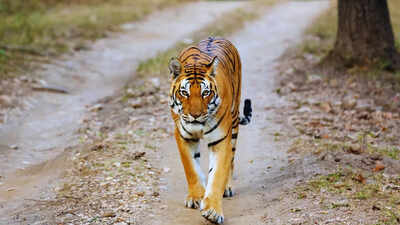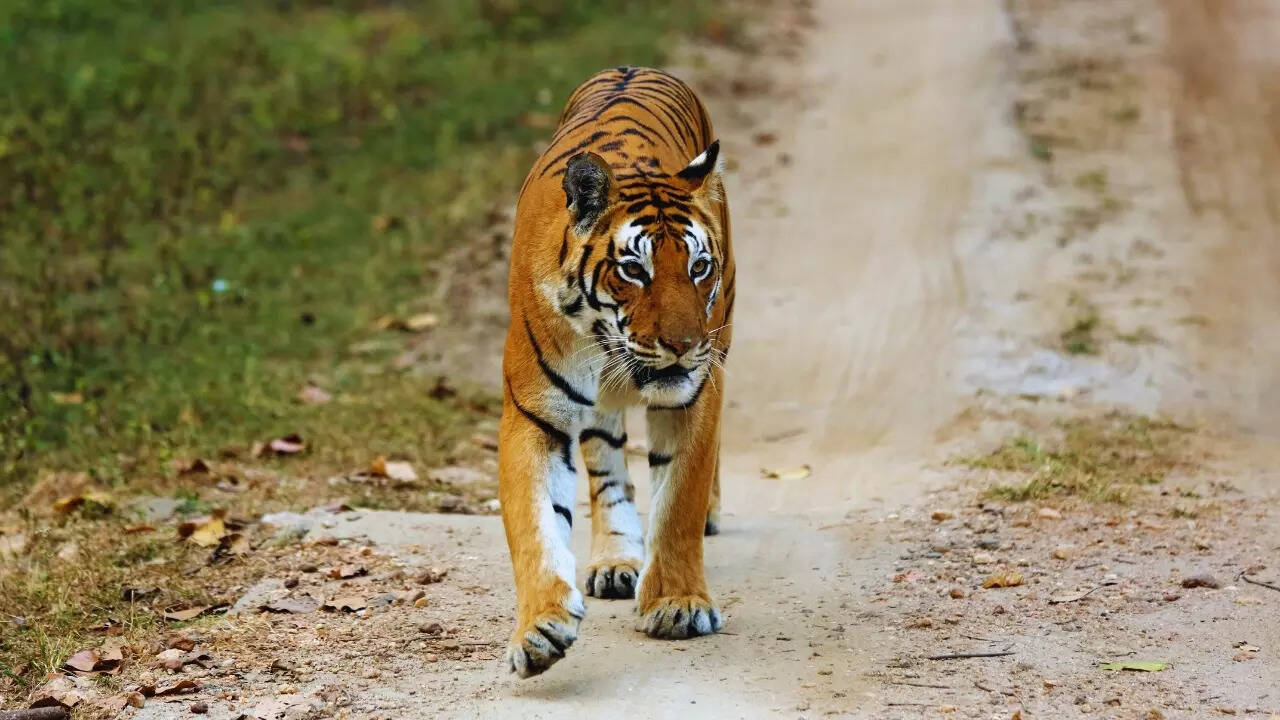ARTICLE AD BOX

The Rajasthan Forest Department has temporarily suspended the tiger and lion safaris at Jaipur’s Nahargarh Biological Park after heavy rains left the tracks slippery and waterlogged, raising serious safety concerns for visitors and staff, as per a report published in The Indian Express (Times of India has not independently verified this information). The decision, announced on Thursday, follows an incident in which a vehicle carrying tourists got stuck during a safari, just 20 feet away from a tiger.
As per the report, both safaris have been closed since October 30 and will remain suspended until further notice. The measure is precautionary, given the ongoing rainfall and poor track conditions. All these have made the terrain unsafe for vehicles.According to the report, a vehicle carrying about 25 tourists, including seven children, got trapped in a muddy pit during a tiger safari. As the driver struggled to move the vehicle, a tiger appeared nearby and perched on a rock just 20 feet away, watching the stranded group for several minutes.
Forest personnel reached the spot nearly half an hour later and safely shifted the visitors to another vehicle.Forest authorities said that while no one was harmed, the incident highlighted the potential risk of continuing safaris under such conditions. Keeping all these in mind, the forest department confirmed that the safaris would remain shut until the tracks are repaired and deemed safe for operation.Continuous rainfall in Jaipur has left several parts of the safari route submerged and unstable.
Officials said portions of the track have caved in or become uneven, making it difficult for even four-wheel-drive vehicles to maneuver. Once the rain subsides, restoration work will begin to level, drain, and reinforce the safari paths. Only after the ground conditions stabilise and safety checks are completed will the park reopen the popular rides.

About Nahargarh Biological Park
Situated on the Jaipur-Delhi Highway, about 12 kilometres from the city center, Nahargarh Biological Park is part of the larger Nahargarh Sanctuary, which forms a vital green corridor along the Aravalli Range.
The biological park spans over 7.2 square kilometres, and was opened to the public in 2016. The park has since become one of Jaipur’s major eco-tourism attractions. If you haven’t experienced this yet, you should most definitely plan a trip to the park after the park is open again for safaris.
The park is home to a variety of wildlife species, including tigers, lions, leopards, hyenas, sloth bears, deer, crocodiles, and a rich diversity of birds and reptiles.
This is the best time to visit the park as the temperature is a lot cooler now, and daytime safaris can be done comfortably. The lion and tiger safaris were introduced not too long ago. Since then, they have been particularly popular among tourists seeking a glimpse of big cats in semi-natural enclosures designed to mimic their natural habitat.Besides being a tourism hotspot, the park also plays a crucial role in wildlife conservation and environmental education.
It serves as a rescue and rehabilitation centre for injured or captive animals, many of which are transferred from zoos or conflict zones across the state. Nahargarh is also part of Rajasthan’s broader initiative to promote eco-tourism while raising awareness about biodiversity protection.Nestled amid scenic hills, the park’s landscape features dry deciduous forests interspersed with grasslands and water bodies that attract migratory birds during the winter months.
For nature lovers, the site provides a chance to experience Rajasthan’s wild beauty just a short drive from the heritage-filled streets of Jaipur.
Safari operations and monsoon impact
Generally, safaris in Rajasthan’s national parks and sanctuaries remain closed between July 1 and September 30 due to the monsoon season, when animal activity increases and tracks become unsafe. However, with the recent spell of unseasonal rain extending into late October, authorities decided to halt operations again this week to prevent further incidents.Officials said that the maintenance and restoration of safari routes will begin once weather conditions improve. While the biological park is known for its carefully managed safaris and strict safety protocols, the combination of rainfall, soft soil, and hilly terrain can quickly turn treacherous.

 15 hours ago
5
15 hours ago
5








 English (US) ·
English (US) ·